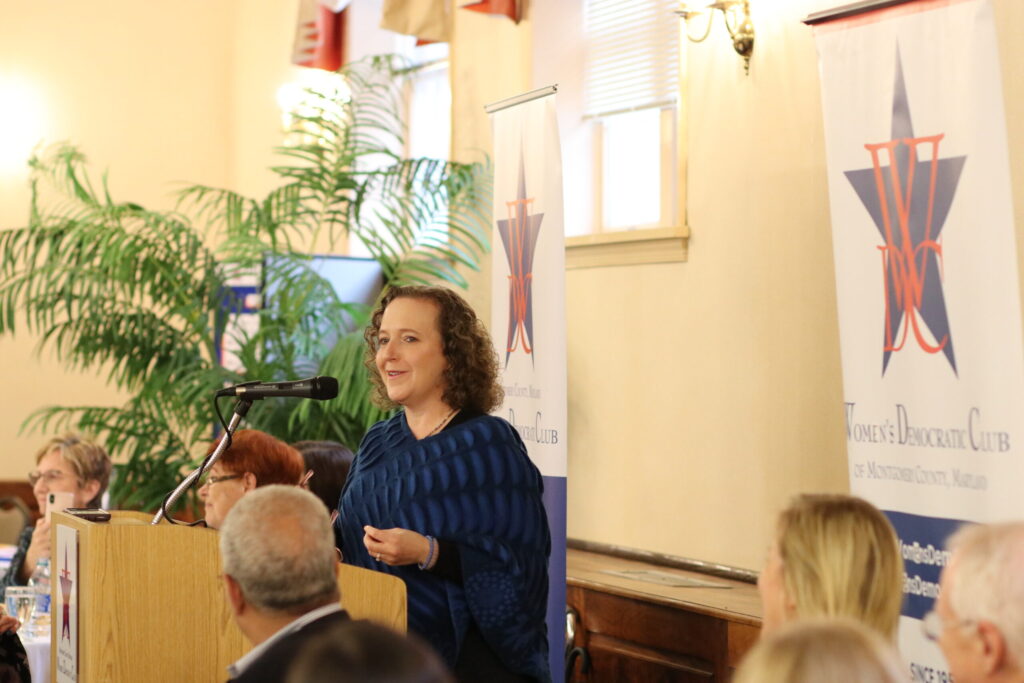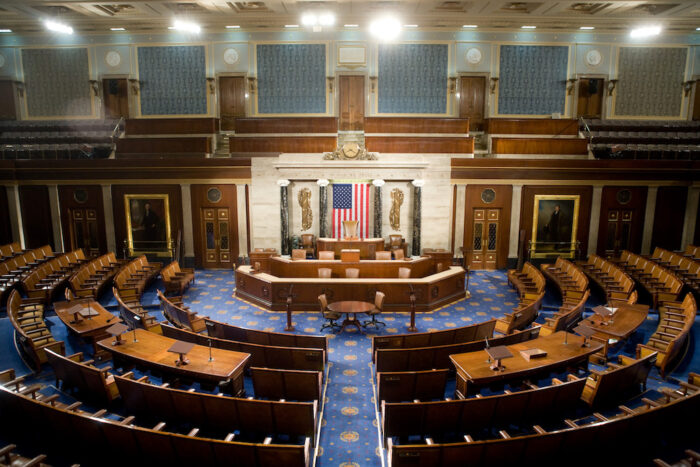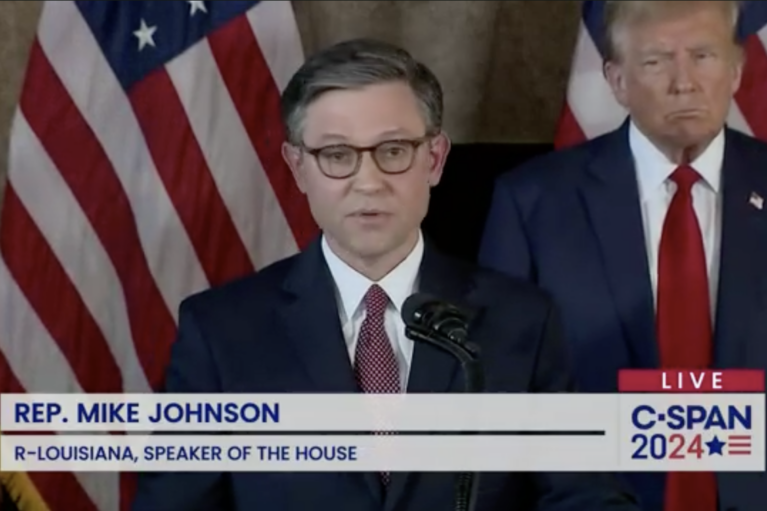Biden and Trump agree: Md. needs regulations for AI use in political campaigns

What’s this? Donald Trump AND Joe Biden endorsing a piece of legislation in Annapolis?
Thanks to a clever and illicit use of Artificial Intelligence, that’s exactly what appears to be taking place this week.
In a short video submitted to the House Ways and Means Committee Tuesday, the 45th and 46th presidents of the United States appear to be backing a bill by Del. Anne Kaiser (D-Montgomery), which would establish regulations for the use of AI and other digital sources in campaign ads and other materials.
“Sleepy Joe doesn’t get much right, but even I can agree on Del. Kaiser’s deep fake bill,” Trump says at the top of the video.
“Yeah, Mr. Trump is a load of malarkey, but at least we agree on Del. Kaiser’s deep fake bill,” Biden chimes in.
The video, of course, isn’t real, but that was the point. And yet in a way, it illustrated the measure’s bipartisan appeal: Including herself, Kaiser’s bill is sponsored by five Democrats and five Republicans.
“I don’t think I’ve ever had a bill that’s had an equal number of Democrats and Republicans” as sponsors, Kaiser told her colleagues.
The bill would put into state law rules that the Maryland State Board of Elections first established in 2022, requiring political candidates and other campaign entities that register with the state elections board to disclose that they are using altered images or audio in campaign ads and literature.
Under the legislation, for a still image, the disclosure must include the statement, displayed in readable lettering: “This image has been altered or modified through the use of computer programs to display an event or image that did not occur.”
For an audio recording, the disclosure must include the recorded statement, spoken clearly, “This audio has been altered or modified through the use of computer programs to display a sound that did not occur.”
And for a video recording, the disclosure must be displayed in legible type throughout the recording and include the statement, “This video has been altered or modified through the use of computer programs to display an event, a sound, or an image that did not occur.”
Kaiser’s legislation lays out fines for violations of these requirements and also sets aside funding for the state prosecutor’s office to hire a special investigator to conduct forensic computer investigations necessary to enforce the bill.
“My bill is really just trying to define things, get the ball rolling, urge transparency,” said Kaiser, who is co-chair of the legislature’s Joint Committee on Cybersecurity, Information Technology and Biotechnology.
Texas passed a law making it a misdemeanor to distribute a deep fake video within 30 days of an election if it’s done with malicious intent or for purposes of misleading voters. California has a law prohibiting political misinformation from being distributed electronically within 60 days of an election. Minnesota passed a law last year prohibiting the use of deep fake political videos within 90 days of an election.
Kaiser said her bill isn’t meant to be as punitive.
“I do believe it’s a little premature to go much further,” she said, citing First Amendment considerations.
Members of the Ways and Means Committee, who consider election bills, seemed generally favorable to Kaiser’s legislation. But they had some questions.
Del. Jheanelle K. Wilkins (D-Montgomery), the committee vice chair and chair of the panel’s Election Law Subcommittee, said the Biden-Trump video was an easy way to identify the potential problem of AI being used for campaigns. But in real life, she pointed out, deep fakes are harder to discern.
“That’s part of the challenge,” Kaiser agreed.
Del. Caylin Young (D-Baltimore City) asked whether the bill would apply to robocalls; Kaiser said it probably would not. Young also wondered whether the legislation would require disclosures for attempts to touch up blemishes in campaign photos, or other cosmetic airbrushing.
“I believe we can all airbrush, get rid of the blemish on our face, make ourselves thinner and get rid of the gray in your hair,” Kaiser replied. “I think us getting rid of a blemish or that gray in our hair is not really what we’re trying to address here.”




 Creative Commons Attribution
Creative Commons Attribution